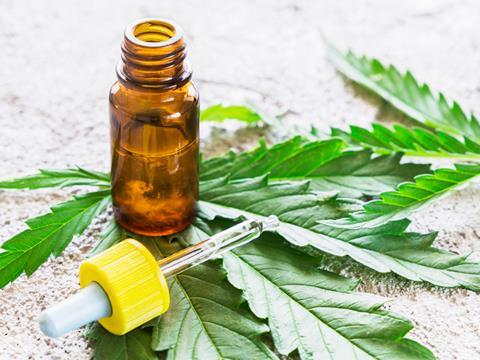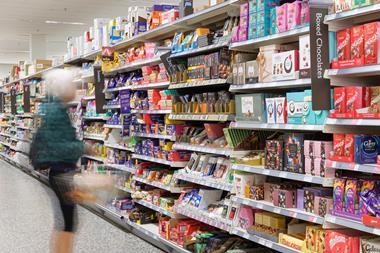
CBD is the latest craze in fmcg – and more and more products boasting CBD credentials are hitting UK supermarket shelves. But many would actually be illegal under FSA rules.
Cannabidiol (CBD) is a non-psychoactive cannabinoid found in cannabis and the term ‘CBD’ is often used to describe CBD-containing consumer products. CBD is extracted from the green material of the hemp plant (Cannabis sativa L), which requires a Home Office licence to grow, and plants must contain less than 0.2% of the controlled drug, tetrahydrocannabinol (THC).
According to current Home Office guidance, CBD is not a ‘controlled substance’ so long as it does not contain controlled cannabinoids such as THC or cannabinol (CBN). THC and CBN are psychoactive cannabinoids found in cannabis and classed as ‘controlled substances’ under the Misuse of Drugs Regulations 2001.
The regulations provide an exemption for products that satisfy all three of the following points: do not contain more than 1mg of a controlled substance; the controlled substance within the product is not intended for human/animal use; and the controlled substance cannot be recovered by readily applicable means.
However, this licence applies only to the non-controlled parts of the plant (seeds or fibre). In some parts of the world, hemp is used to clean contaminated soil as it is naturally phyto-remedial. It has also been shown to contain a variety of harmful contaminants absorbed from the environment including heavy metals, pesticides, benzopyrenes and polycyclic aromatic hydrocarbons. Analysis of CBD products for heavy metals, polycyclic aromatic compounds, pesticides, mycotoxins and harmful bacteria is important to ensure the safety of the products.
Food Standards Agency confirmed as CBD Global Summit participant
Recent testing at Fera Science found levels of environmental contaminants, THC and CBN in CBD products derived from hemp currently on sale in the UK. Trace analysis for THC and CBN uses highly sensitive mass spectrometry methodology. Currently achievable limits of detection are less than 2.5mg/kg (parts per billion). Importers of prepared product should demonstrate the absence of THC and CBN below a 1mg concentration in a whole product. Home Office rules do not state the size of the pack to which the 1mg limit applies, so bulk importers are perhaps most at risk.
Fera also found that the level of CBD in some products was very different to that shown on the label. CBD extracts, isolates and synthetics are now classed as a ‘novel food’ under Regulation (EU) 2015/2283 since January 2019, which means foods or food ingredients which do not have a history of consumption before May 1997 should be evaluated and authorised before they can be placed on the market. This means that all CBD products must have novel food application approval or submitted an application for their products to remain on the market.
The FSA is insisting that the CBD industry must provide more information about the safety and contents of these products to the regulator before 31 March 2021, or the products will be taken off the shelves. In addition to this, no medicinal claims should be made about any CBD products unless they have been approved for medical use by the MHRA. Any health and nutritional claims for an individual food product must also align with Regulation (EC) No 1924/2006.
CBD product use has grown significantly in the UK within the past year, with recent research commissioned by the Centre for Medicinal Cannabis revealing the UK CBD market is worth £300m – and is forecast to grow to over £1bn by 2025. For sellers in the UK of CBD extract products, this growing market trend doesn’t seem to be slowing down anytime soon. Make sure you have the right authorisation in place to make the most of this.



















No comments yet